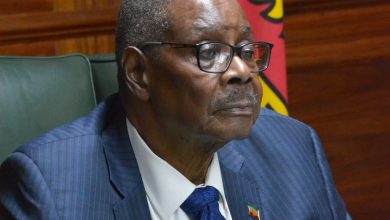Emotions, trivia won’t heal ailing economy
Ever since Malawi’s four-year $175 million (about K306 billion) Extended Credit Facility (ECF) with the International Monetary Fund (IMF) terminated automatically after going 18 months without a review, my curiosity has been on the reactions, especially from Malawi Government authorities.
To say the least, most of them have tended to be emotional and, in some instances, bordering on trivia.
Immediately after the suspension or ‘lapse’ of the ECF, whose approval was wildly celebrated in November 2023 as a game-changer, the Malawi Government stated that the decision was based on a mutual agreement between the Bretton Woods Institution and Lilongwe. On the other hand, the IMF, in its update on Malawi, said the programme expired and that the fund was now engaged in Article IV consultations with the Malawi Government.
Two weeks ago, in its latest Article IV consultations assessment update, the IMF proposed to Malawi to abandon the fixed exchange rate and adopt a flexible, market-driven, warning that the current regime is fuelling inflation, draining reserves and stalling recovery. It further said policy delays have eroded initial gains and exposed the economy to deeper vulnerabilities.
However, judging by the reaction from our monetary and fiscal policy custodians, the sentiments have kind of stepped on raw nerves.
Malawi’s economy is in the intensive care unit, surviving courtesy of life-support machine, “iri pa oxygen”. Inflation rate is at 27 percent as of June 2025, according to National Statistical Office data, unsustainable fiscal and debt outlook coupled with the twin headaches of foreign exchange and fuel scarcity.
This does not look good. The sentiments on the ground, as established by the Institute of Public Opinion and Research (Ipor) survey conducted between July 6 and 20 this year is that 90 percent of Malawians say the economy is in very bad state. Nearly 80 percent of the respondents say the economy has worsened over the past year, according to the survey.
That is the reality on the ground, as such, it is foolhardy to divert attention from real issues by focusing on trivia amid poor report cards.
Put explicitly, Malawi’s failure is an interlink between a cycle of crises and low growth—stunted or slow growth caused by macro-economic imbalances. In the circumstances, one cannot blame a doctor for giving them a wrong prescription when they themselves are not adhering to the medication and facilitating its success through good nutrition.
There is need to be realistic that achieving stability in an environment of high debt burden where the bulk of revenue is going to service debt, is next to a miracle as there is a vicious circle where other operations are financed by incurring more debt.
The report cards from the IMF and earlier on the World Bank do not make good reading and call for action. Focus should be on our suctions, not diversion to some trivia policy proposals such as taxing banks or the diaspora when the country can instantly save trillions of kwacha from government debt service costs.
In pursuit of Malawi 2063 targets and the First 10-Year Implementation Plan in particular, it would be prudent to plan structural reforms with specific targets as the Tiger economies of Asia did when they made it very clear regarding how many jobs and how much output they wanted to shift away from agriculture to manufacturing, not just singing the agriculture, tourism, mining and manufacturing (ATM+M) strategy.
Moving forward, authorities need to identify key factors affecting spending in Malawi by listing few important ones and address them through monetary policy or prudent fiscal measures or indeed a hybrid. Clear roadmaps have often proved highly beneficial in project implementation.
Where do we get the resources? Expanding tax base is now a grooved record. It is time for transfer planning and arbitrage as most of Malawi’s commodities, including fuel, are smuggled to neighbouring countries at a loss, especially with forex from the same trickling in through informal parallel market.
The other day, Economics Association of Malawi president Bertha Bangara-Chikadza stated that the government should look beyond production-led recovery and pursuing of structural reforms that can close the fiscal gap and build resilience. I cannot agree more.
Malawi, as a ‘patient’, has failed to respond to the treatment prescribed by the ‘doctor’, IMF through its policies, starting from Structural Adjustment Policies through Enhanced Structural Adjustment Policy to Poverty Reduction and Growth Facility and now ECF.
Poor public finance management and weak oversight have also been major detractors towards achieving stability and growth.
Responding to a question during a session on ‘Outlook for the global economy and policy priorities’ at Georgetown University School of Foreign Service where on October 6 2022, IMF managing director Kristalina Georgieva decried the situation Malawi was sailing in and hoped “to see the World Bank coming up with grants, bilateral donors coming up primarily with grants because Malawi cannot take up more debt. Debt is already unsustainable”.
This being an election year, the general fear is that the Malawi Government may be forced to opt for expensive loans which in the long run will not be a good path to take.





